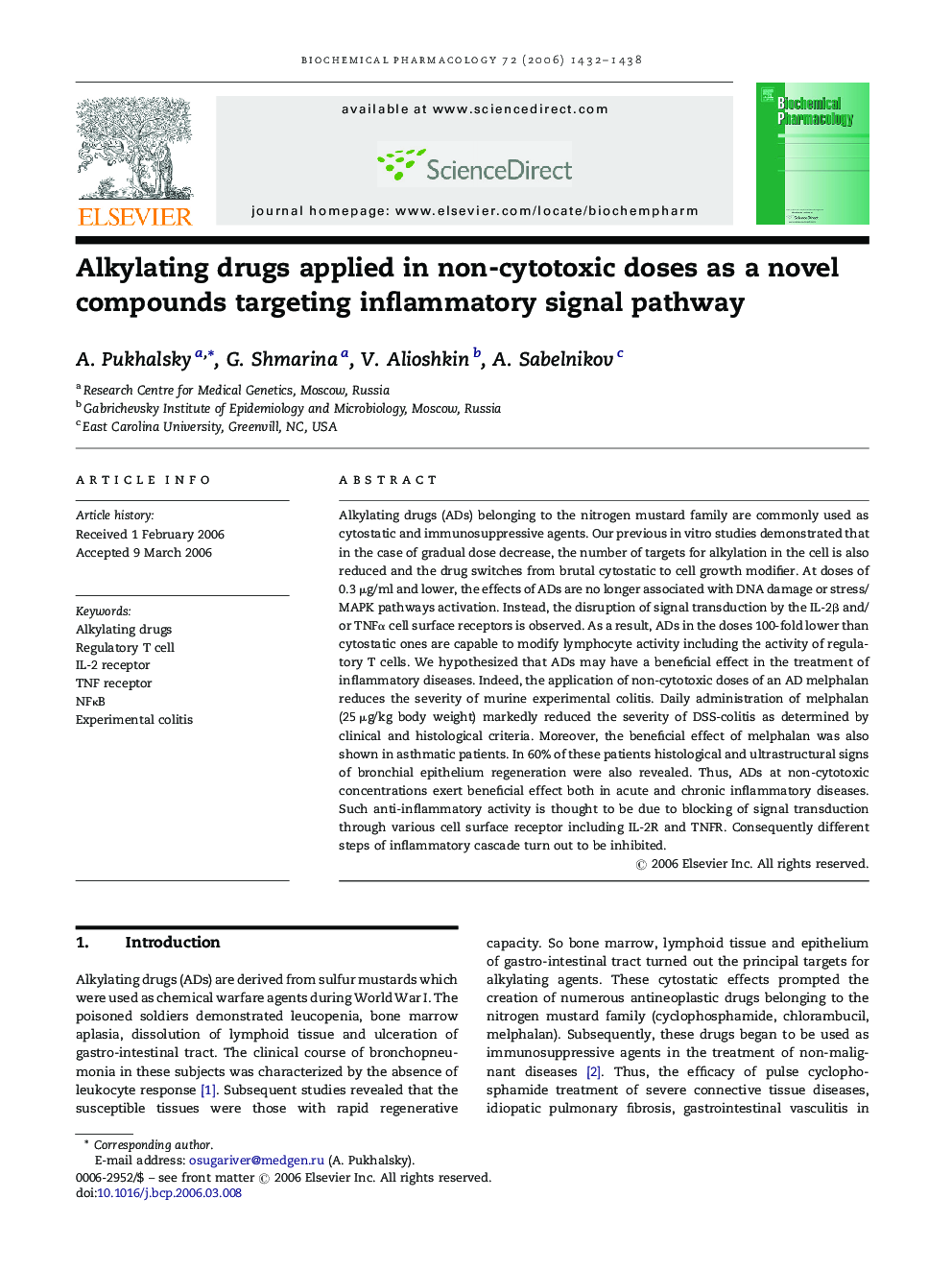| Article ID | Journal | Published Year | Pages | File Type |
|---|---|---|---|---|
| 2515082 | Biochemical Pharmacology | 2006 | 7 Pages |
Alkylating drugs (ADs) belonging to the nitrogen mustard family are commonly used as cytostatic and immunosuppressive agents. Our previous in vitro studies demonstrated that in the case of gradual dose decrease, the number of targets for alkylation in the cell is also reduced and the drug switches from brutal cytostatic to cell growth modifier. At doses of 0.3 μg/ml and lower, the effects of ADs are no longer associated with DNA damage or stress/MAPK pathways activation. Instead, the disruption of signal transduction by the IL-2β and/or TNFα cell surface receptors is observed. As a result, ADs in the doses 100-fold lower than cytostatic ones are capable to modify lymphocyte activity including the activity of regulatory T cells. We hypothesized that ADs may have a beneficial effect in the treatment of inflammatory diseases. Indeed, the application of non-cytotoxic doses of an AD melphalan reduces the severity of murine experimental colitis. Daily administration of melphalan (25 μg/kg body weight) markedly reduced the severity of DSS-colitis as determined by clinical and histological criteria. Moreover, the beneficial effect of melphalan was also shown in asthmatic patients. In 60% of these patients histological and ultrastructural signs of bronchial epithelium regeneration were also revealed. Thus, ADs at non-cytotoxic concentrations exert beneficial effect both in acute and chronic inflammatory diseases. Such anti-inflammatory activity is thought to be due to blocking of signal transduction through various cell surface receptor including IL-2R and TNFR. Consequently different steps of inflammatory cascade turn out to be inhibited.
